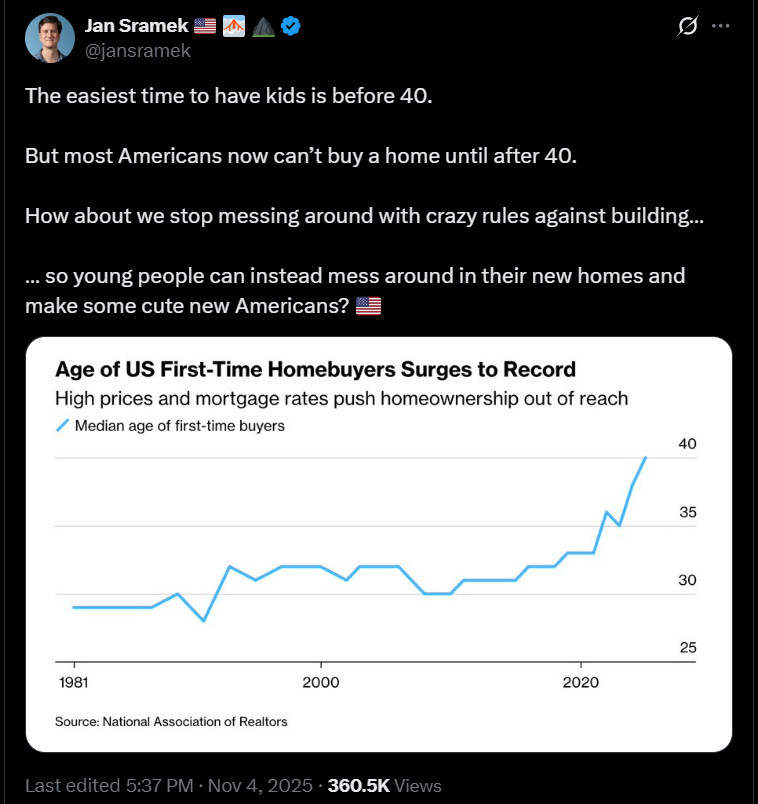Mortgage Before Maternity
How America’s cult of homeownership sabotages its own future.
The assumption that one must own a home before starting a family is a cultural artifact, not a biological necessity. Yet it dominates the American psyche as if it were a natural law. The tweet’s underlying narrative—homeownership as prerequisite to childrearing—reveals how economic structure, policy, and cultural signaling have fused into a self-reinforcing myth.
The Ritual of Adulthood
Postwar America transformed homeownership into the central rite of passage for adulthood. It replaced older communal and religious milestones with a financial one. A house became more than shelter; it was proof of maturity, prudence, and permanence. This moral framing endured even as the material basis for it eroded. The result is a society where owning property functions as a proxy for being a responsible adult—and by extension, a responsible parent.
Policy-Driven Infertility
The housing crisis is not just an economic issue but a demographic one. Zoning restrictions, artificial scarcity, and financialization have delayed or denied the transition to ownership for millions. When the symbolic threshold of ‘readiness’ is locked behind decades of debt and inflated prices, fertility collapses by default. It’s not that people can’t have children without property; it’s that the culture has taught them doing so would mark them as failures.
Coordination and Status
Individuals act within social equilibria. When peers and families treat renting with suspicion and childrearing without homeownership as reckless, deviating from the norm carries reputational cost. This produces a coordination failure: everyone waits to be ‘ready’ in the same socially approved way, while the biological clock keeps time indifferent to mortgage rates.
From Stability to Asset Dependence
Previous generations built families on stability of work and community. Today’s system demands stability of assets instead. The mortgage has replaced the village. What once required a supportive social fabric now requires a 30-year debt instrument.
The Deeper Lesson
The graph isn’t just about delayed homeownership—it’s about delayed adulthood, delayed family, and a society that outsourced its concept of maturity to the housing market. If the easiest time to have kids is before 40, but the average homebuyer is 40, the problem isn’t fertility—it’s a culture that mistakes capital accumulation for readiness.
To reverse this, the remedy isn’t just deregulating construction. It’s breaking the false equivalence between owning property and being allowed to build a life.



